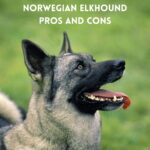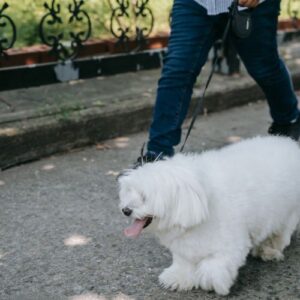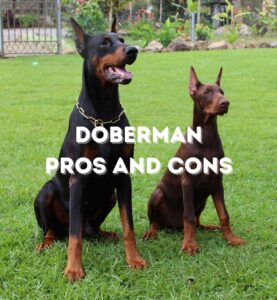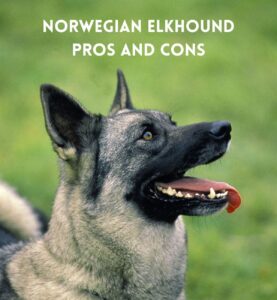Norwegian elkhound pros and cons. Are you planning on adding a furry friend to your home? Look no further than the Norwegian Elkhound! This loyal and protective breed has been around for centuries, but what are the actual pros and cons of owning one? Let’s explore the good, bad, and everything in between together so you can make an informed decision about if the Norwegian Elkhound is suitable for your family!
The Norwegian Elkhound

The Norwegian Elkhound is a primitive breed from Scandinavia, renowned for its versatility, intelligence, and loyalty. It has been used for thousands of years as a hunting and guard dog, possessing keen senses and a strong desire to please its owners.
The Norwegian Elkhound has a long, thick coat that is usually gray with some white on the neck and chest, as well as a black mask on the face. It requires minimal grooming due to its low-shedding nature. This breed loves playing with children and being around people in general, making it an excellent family pet.
When considering whether or not this breed is right for you, it’s important to weigh the pros and cons of owning one of these dogs carefully. On the plus side, this breed is incredibly loyal and will protect its humans in any situation; however, they can also be independent when given the freedom to explore or roam outdoors. They have an impressive amount of stamina, making them good hunters, but they can be stubborn, which makes training difficult.
- These dogs need plenty of exercises (ideally two long walks every day), so they should not be kept as kennel dogs; instead, they should be part of family life if possible for optimal mental health and happiness.
- Lastly, their thick coats mean that their shedding habit may not suit those with asthma or allergies within the household.
Overall though, this breed is the delightful company that requires solitude companionship, which means you are more likely to have one around than merely its physical protection!
List of Pros: Loyal, Intelligent, Trainable
The Norwegian Elkhound is a medium-sized dog originating from Norway. It is a spitz-type breed that has been used for centuries to hunt and guard games, such as moose, elk, and other large games. They are easily recognized by their thick grey and white coat, floppy ears, and muscular body structure. The Norwegian Elkhound is an active and loyal companion that makes a great pet for active families.
Pros of owning a Norwegian Elkhound include:
- Loyal: The Norwegian Elkhound forms strong bonds with its owners, making them very devoted and loyal companions who will always support you no matter what.
- Intelligent: This breed is incredibly intelligent, which makes it easy to train. They have been known to pick up commands quickly with the right owner guidance.
- Trainable: The Norwegian Elkhound is eager to please their owners, which makes training them both rewarding and fun! Training your Elkhound can help ensure it grows happy and healthy in the home environment.
- Good With Children: Known for its friendly demeanor towards children of all ages, the Norwegian Elkhound enjoys playing with kids as well as being around them from time to time, making this breed one of the best family pets out there!
List of Cons: Stubborn, High Energy, Shedding
The Norwegian Elkhound is a strong, medium-sized Nordic Spitz-type dog. He is loyal and friendly and makes for a great companion and family guardian. However, as with any breed of dog, there are some cons to owning an Elkhound that needs to be considered before bringing one home.
One of the Norwegian Elkhound’s primary cons is their stubbornness and independence. This can be challenging for some owners who need to become more experienced with training or disciplining pets. While not physically dominant, this breed may test its owner’s limits in order to establish who is the Alpha of the household.
Norwegian Elkhounds require lots of physical activity and stimulation in order to stay satisfied and healthy. Without proper exercise routines and mental outlets such as puzzle toys, they can become destructive or hard to manage due to boredom or lack of exercise demands being met.
Additionally, Norwegian Elkhounds shed heavily twice a year due to their double coat – while consistent brushing sessions can easily manage this – it requires dedication on behalf of the owner; if you’re not ready for extra cleaning throughout the year, then this breed may not be ideal for you.
Health Considerations

It is important to consider the health risks affiliated with the Norwegian Elkhound when making a decision about which breed is best for your family. These dogs are generally considered quite healthy, but they are susceptible to certain conditions that should be kept in mind.
- Eye Issues: Norwegian Elkhounds can develop various eye issues, such as entropion and distichiasis, which require corrective surgery. They can also develop Progressive Retinal Atrophy (PRA), a degenerative retinal disease that can eventually lead to blindness. It is important to have the dog’s eyes examined regularly by a vet in order to catch these problems early if present.
- Hip Dysplasia: Hip dysplasia is an inherited condition found in many breeds, and it results from abnormal development of the hip joint, leading to arthritis and lameness later in life. It can usually be managed with medication, but surgery may also need to be performed, depending on its severity.
- Skin Conditions: Norwegian Elkhounds are prone to skin conditions such as demodicosis or management. If this is left untreated, it can spread throughout the body and make the dog very uncomfortable. Manage it through regular bathing and medicated shampoos as prescribed by a veterinarian.
Overall, Norwegian Elkhounds are relatively healthy dogs with no major health concerns. However, proper care is essential for any breed of dog in order for them to remain healthy and happy throughout their lifespan.
Exercise Needs
Exercise is an important part of life for a Norwegian Elkhound. If a dog of this strong and capable breed doesn’t get enough physical activity, it can become bored and start acting out. A daily walk or jog is ideal, along with plenty of space to run around in an open field or on a beach. Training your Norwegian Elkhound to respond to basic commands is also important.
In addition to its physical needs, the Norwegian Elkhound also needs lots of mental stimulation in the form of activities like:
- Fetch
- Tracking games
- Interactive toys
While they make wonderful family dogs, it’s important to remember that they are working dogs at heart and require exercise and stimulation daily as part of their overall care and wellness program.
Grooming Requirements
Norwegian Elkhounds are double-coated dogs that require frequent grooming to maintain their healthy, glossy coats. Their double coat of soft undercoat paired with a straight, weatherproof topcoat provides both insulation and protection from harsh weather conditions. This makes the Norwegian Elkhound a great dog for outdoorsy owners, but it also means that they need regular brushing and bathing to keep their coats in tip-top shape.
Not only do Norwegian Elkhounds require weekly brushing and regular bathing, but they also need professional grooming every few months. Professional care can help ensure proper trimming of the fur around their faces, paws, and bottom; trimming or plucking excess fur from around the ears can also help reduce the risk of ear infections which are sometimes caused by matted fur. Grooming appointments will also allow for thorough checking of the skin for any sores or irregularities that may need further medical attention.
Because of all these requirements, owning a Norwegian Elkhound requires a significant time commitment. Owners should plan regular trips to the groomer or allot time each week for brushing and bathing sessions at home to ensure their pup has good health and an attractive appearance.
Norwegian Elkhound Lifespan

The average lifespan of a Norwegian Elkhound is 10-12 years. This medium-sized breed is considered to be long-lived for its size. They do not suffer from any major health problems and tend to stay active and healthy throughout their lives.
However, some things may affect an Elkhound’s lifespan, such as poor nutrition or lack of exercise. It is important to ensure that you provide your dog with the appropriate diet and enough exercise to keep them healthy and active throughout life. Proper vet care is also essential in order to ensure your pet lives a long, happy life.
Norwegian Elkhound Bite Force

The Norwegian Elkhound is a strong and sturdy dog, shown by its impressive bite force. Having been bred specifically for hunting large game like moose and bear, such a dog requires a powerful jaw to be successful in their mission. Tests have revealed that the bite force of an adult Norwegian Elkhound is approximately 200 PSI (pounds per square inch), which can compare with larger breeds, such as Pitbulls or Rottweilers. This makes them suitable for certain types of jobs, such as service and protection work, but it might be too much power when dealing with smaller animals or children.
It should also be noted that the Norwegian Elkhound does not usually display aggressive tendencies; however, it is important to ensure owners are responsible for properly training their dogs for socialization to reduce any potential risks and unsafe situations.
Is a Norwegian Elkhound a good family dog?
Norwegian Elkhounds are loyal, friendly dogs that make wonderful family pets, but it’s important to understand their pros and cons before you commit to caring for one. To help you decide if a Norwegian Elkhound might be a good fit for your household, here’s an overview of their temperament and needs.
Pros:
- They’re loyal and devoted, making them great companions.
- They’re relatively low-maintenance, so they don’t require too much care or attention.
- They are active and energetic, which makes them excellent running or hiking partners.
- They get along well with children and other pets in the home.
- They can handle cold weather better than many breeds due to their thick double coat, making them well-suited for Nordic climates.
Cons:
- They can be stubborn, so patience is required during training.
- Their thick coats require regular grooming to avoid matting or tangling.
- They are independent, so they sometimes want to obey orders from their owners.
- Their tendency toward chasing smaller animals can make supervision necessary when outside of your home environment.
Overall, a Norwegian Elkhound can make an excellent family companion but understanding their needs before bringing one into your home is essential for success in life with this breed!
Why do Norwegian Elkhounds bark so much?
Norwegian Elkhounds tend to bark a lot, although the exact amount can depend on an individual dog’s personality and environment. Norwegian Elkhounds are bred to hunt, and as a result, barking is an essential part of their nature! This can make it difficult for some owners, as excessive barking can be very disruptive in certain situations.
Norwegian Elkhounds are incredibly intelligent and affectionate dogs that thrive best when they have activities and exercise to keep them stimulated. Boredom can exacerbate barking, so owners should be sure to provide their Elkhound with plenty of mental stimulation and access to sufficient exercise and socialization opportunities. Training specifically designed for managing excessive barking can also be useful, as this will help your dog understand why it is inappropriate in certain situations and when its voice should remain quiet.
Are Norwegian Elkhounds high maintenance?
Norwegian Elkhounds are a hardy, independent breed that does not require a lot of grooming or maintenance. They have a thick, weather-resistant coat that does shed, but regular brushing can help control shedding. They are also an active breed and require regular exercises, such as long walks or runs, and they can be prone to separation anxiety. Overall, they are relatively low maintenance compared to other breeds.
Can Norwegian Elkhounds be left alone?
Norwegian Elkhounds are an independent and hardy breed, but they can be prone to separation anxiety if left alone for long periods of time. They are a working breed and have a strong desire to be with their pack, which can include their human family. It is important to properly train and socialize them from a young age to help them become more comfortable being alone. Gradually increasing the amount of time they are left alone, and providing them with plenty of exercises and mental stimulation before leaving, can also help.
It is advisable to leave a Norwegian Elkhound alone for long periods of time, 8 hours a day or more, by providing them with proper care and attention. This can cause behavioral issues and stress for the dog. It’s always best to have someone check on them or have them in doggy daycare.
Conclusion
In conclusion, the Norwegian Elkhound is a breed that is loyal, intelligent, and highly protective of its family. They are known to be good with children but require an active lifestyle to stay healthy and happy. However, they may be prone to separation anxiety if left alone for too long or not given enough exercise. Despite this, they remain a popular choice among many dog owners due to their friendly temperament and strong guarding instincts.






